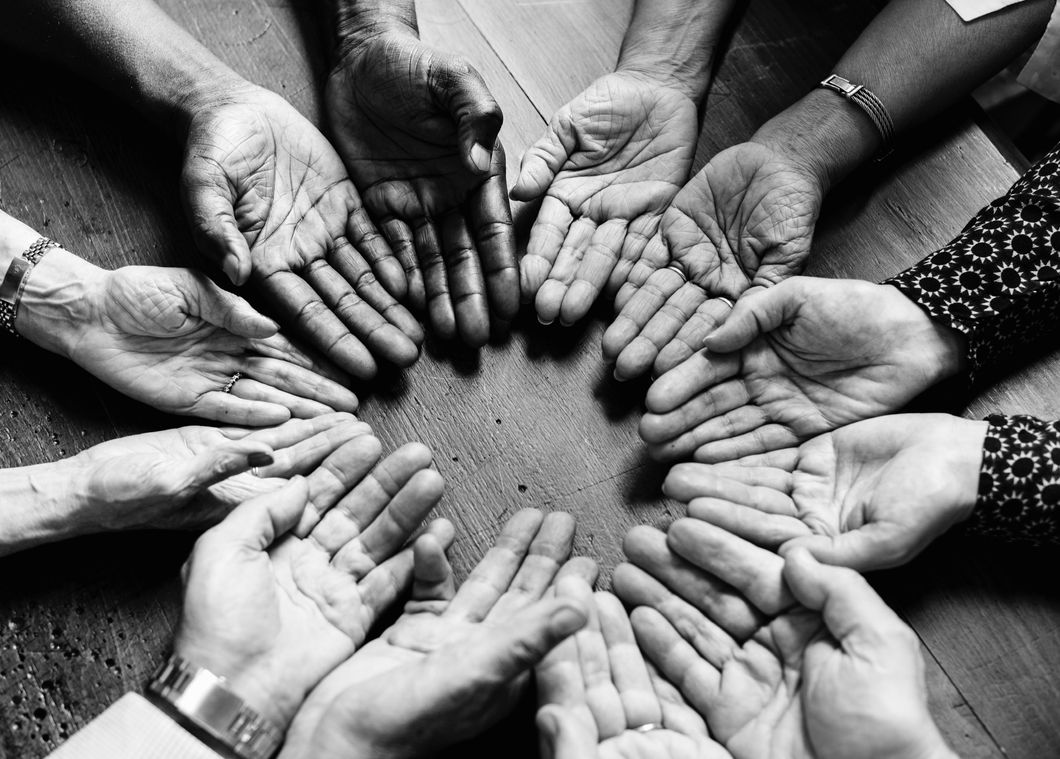In the words of Audre Lorde, "Certainly there are very real differences between us of race, age, and sex. But it is not those differences between us that are separating us. It is rather the refusal to recognize those differences, and to examine the distortions which result from out misnaming of them and their effects among human behavior and expectation."
Racism: the prejudice and systemic discrimination of a group of people simply because they are of a different race. Yes, there are people whose ideological values fit this description perfectly. They are at least aware of their prejudice, although they feel it is justified. However, as it perpetuates in society today, the issue has been undermined and the way to fight it misconstrued, causing society to internalize racism even more than it already has.
Racism is not simply hurting someone's feelings. Rather, to encompass all of what racism really is, it is the systematic destruction of an ethnic group. Racism in our society has become so internalized, we are not even fazed by it anymore. As a result, people of color are put at a disadvantage, unable to pursue opportunities like white people. So from preventing themselves from being accused of judging based on color, the statement "I don't see color" has risen. And as well-intentioned people who say "I don't see color" are, the statement does nothing to help the fight against that.
As a first-generation Asian American, my background is a valuable part of my identity. I love my Vietnamese culture. I love the food we eat. I love our Lunar New Year's traditions. I love the music we listen to. I love the love and pride we have for all my ancestors have gone through and for what we continue to do and go through. I love my race. It is part of what makes me, in combination with every other factor in my life, unique. I would never want to change that part of myself. My culture is a part of me that needs to be seen. It should be seen.
I understand the reasoning behind the colorblindness statement. I do. But when thought through, the statement is inherently racist. Essentially, the whole phrase is connected to the idea that if a person simply washes away the color of another person's skin, then everyone is now "equal." Except we're not. By saying you don't see color, you are washing centuries of oppression and discrimination against people of color. With me, you wash away my history and my culture. You destroy a huge part of me, you destroy my identity, you destroy a huge part of my reality. You destroy the beauty of me.
Why does my race need to be washed away for people to see who I am as a person? Why does my race make people uncomfortable? If you rephrase the sentence, "I don't see color" it can arguably equate to "I see who you are despite your race." My race isn't a bad thing. It connects me to a world much larger than the community in which I live. You can ask questions connected to the color of my skin. All I ask is that you don't make judgments or assumptions about me SOLELY based on that.
To add another point... Why is this sentence never said to white people? There is a problem in America, where anyone or anything that is non-European is immediately foreign. The reasons why race is such a controversial topic in the world today, are not the fault of people of color. Race is being made such a "controversial" topic by the people who are resistant to the cries of the people of color who just want their diversity and identity as an American to be accepted, without need for qualification. We need everyone's race to be the norm.
Again in the words of Audre Lorde, it is not the differences that separate us. It's not the difference in skin tone that separate us. It's the lack of understanding behind due differences that cause a divide.
"Colorblindness" causes a narrow understanding of the world and it leads to a lack of connection. People with this "color blindness" are not taking the time to understand different cultures. With that lack of understanding, a person can only be led down a path where inaccurate stereotypes are their reality of the world. And then, they miss the true beauty of it. When the people in power begin to think like that, they are then given the ability to determine others' stories and how they are told. And racism, without the ability to speak all truths, keeps thriving. Everyone needs to be able to tell their story and have it accepted for what it is.
Life is a complex story. Just like in understanding any story or situation, multiple perspectives need to be taken into account. A book could never be understood if we only read about a few of the characters. A court trial could never be fair if the defense never presented their case. Without the ability to change perspective, there is no ability to grasp the truth of the story. We can't understand the story of life if we can't accept the world around us, if we can't accept those different from us, if we don't take the time to understand each other. My culture and race are always present. Look and see. If you can accept it, then you'll really know me.
- Don't Be ColorBlind. You Need To See Race ›
- Your "Colorblindness" Is Part Of The Problem ›
- Why We Should Stop Saying, "I Don't See Color" ›
- "I don't see color" does not make you an equality advocate ›
- The Problem With The Phrase "I Don't See Color" ›
- Saying You 'Don't See Color' Is Actually Racist ›



















